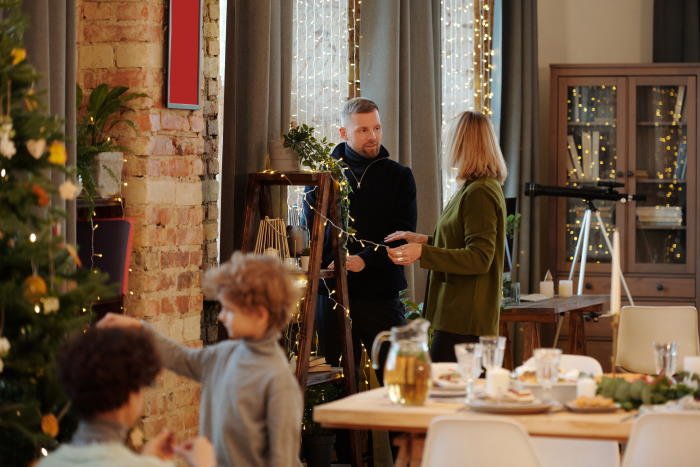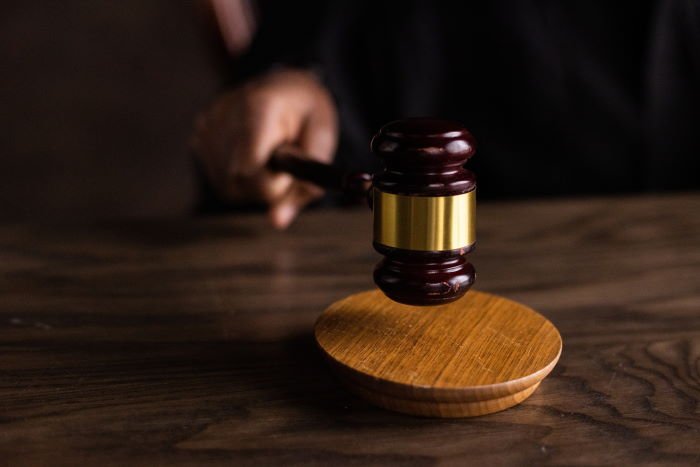Have you felt an intense amount of pain from an event in your marriage or love relationship? An experience when one partner or spouse fails to respond at times of urgent need strongly influences the strength of the emotional bond between partners. Without an intervention, if one partner feels abandoned or betrayed, the fall-out from that experience can destroy a relationship.
Events that are still raw and bring up intense emotional reactions can overwhelm the injured partner. How the other partner responds to the injured partner can go a long way to either heal the injury, or to make it worse. If one partner withdraws from his or her partner at a key moment of need, and in the aftermath is unwilling to talk about the incident and address the injured partner's hurt or pain related to the event, the injury can easily overwhelm new, positive experiences together.
Negative events call for forgiveness, but forgiveness is not the grand prize. An injured partner's mind will not let go of the injury until he or she has the confidence that his or her partner would never abandon or betray him or her again.
What Counts as an Injury in a Relationship?
The subject of the injury matters far less than the meaning and significance of the event to the injured partner. An affair or infidelity by one partner is far from the only event that can lead to a relationship injury. An injury results from an experience when one partner is experiencing heightened levels of vulnerability and need, and is met with a response that is dismissive or absent from the other partner.
Why Does an Injury Hurt so Much?
Extreme levels of emotional harm in a relationship leads to isolation and separation between partners, and increases a sense of vulnerability. Even though relationship injuries may not have the same degree of effect as childhood traumas, they can cause damage to the relationship connection that may lead a couple to separate or divorce. Until the injury is healed, in times of stress, the relationship becomes a source of danger rather than a place a partner can turn to for safety and refuge.
If you and your partner are mostly doing well together, but have never recovered from the effects of a particular injury, you may notice that you continue to loop back into the injury automatically, or that a distance persists between the two of you that won't mend. Injuries cause intense emotional reactions that lead to constricted emotional responses and rigid patterns between partners. When the injured partner is reminded in some way of the injury, he or she either gets very angry, or withdraws intensely (this is not a passive withdrawal, but a very abrupt and "loud" reaction). The language of trauma is present in the relationship, as words convey life-or-death finality focused on abandonment, betrayal, and isolation. The injured partner takes a stance that he or she will never be in a vulnerable position with the other partner again. The reaction of the other partner is often intense anger or a strong withdrawal as well, reinforcing the pain of the injured partner. Without breaking this impasse, the couple is unlikely to create positive interactions and feel closer to each other, the way healthy, secure couples can.
For couples working with the Loving at Your Best Plan, a sequence develops that can cause pain at a certain point. The withdrawing partner becomes more emotionally engaged, and the more angry partner works to express his or her hurts and fears. He or she then slowly takes new risks with the other partner. During this stage, when a couple should be experiencing a renewed closeness together, the injury often flares up even more, and can be experienced by the injured partner similar to a traumatic flashback. Commonly, couples then argue about what happened during the injury, and how the event should be defined. A challenge for both partners is to express his or her vulnerabilities, and to engage with each other in a way that moves the event to become the top priority. If the couple doesn't do this, trust will most likely remain allusive, and the relationship usually remains in distress.
The Nightmare Scenario of a Relationship Injury
When one partner is in urgent need for support and caring that he or she expects from his or her partner, and the response from the partner is that he or she is inaccessible or unresponsive, a nightmare scenario occurs when the injured partner feels helpless and desperate. Trust in the partner can be wiped away, and the injured partner may plunge into emotional isolation. An injured partner's feelings of abandonment or betrayal are the key markers of an injury, not whether an outside person determines whether the actual event warrants the definition of an injury. Common events in the life cycle of a relationship are particularly ripe for injury, such as the birth of a child, physical illness, disorienting life transitions like retirement or immigration, and times of loss (miscarriage, death of a parent, child, loved one, or pet).
If a partner discounts, denies, or dismisses the injury, this response prevents healing of the injury in the relationship, and can make the injury worse. In Latin, trauma means "wound" or "injury" and stems from the Latin word injuria, meaning "to wrong." Not all painful events lead to a trauma, but if a partner is particularly sensitive to trust and abandonment themes from his or her past, he or she is much more likely to define events in the relationship as injurious. This sensitivity does not take away from the meaning of the trauma, or the impact it can have on the relationship.
New York Couples Have Faced Key Moments of Vulnerability
Partners usually expect their loved one to be attentive, responsive, and supportive, especially in times of crisis. In New York, traumatic experiences such as 9/11 and Hurricane Sandy may have been key tests of the strength of the marriage or love relationship. Vulnerability and comfort was essential during these events, and if a partner was unresponsive, the mind of the injured partner is unlikely to let that go and "move on." The sense of trust can be shattered in the relationship, and a sense of helplessness evolves, becoming the strongest feature of the injury.
How Do You Know When Your Relationship has an Unresolved Injury?
When a person is without physical or emotional support, and at their most vulnerable, he or she most likely has the most difficulty regulating emotions. Injured partners often exhibit symptoms similar to classic Post Traumatic Stress Disorder (PTSD), including re-experiencing the injury repeatedly, numbing out whenever reminded of the injury, and becoming hyper-vigilant when associating with the injury. Memories and emotions linked to the injury often pop-up in the form of dreams, flashbacks, and intrusive memories (ruminating about every detail of the event and the reason the injury occurred). An apology from the other partner is rarely enough for the injured partner to let the injury go.
What's Wrong with the Status Quo?
Is there a cost to an injured partner resorting to the self-protective responses of avoiding and numbing? Numbing stops emotional engagement and interferes with resolution of the injury. Intrusive images and hyper-arousal reinforce the belief that the partner is a source of pain and fear instead of safety and comfort. An injured partner usually swings between accusations and clinging behaviors toward the partner, and then numbing and withdrawing intensely from him or her. The pattern becomes chaotic and aversive to both partners. Even when the injured partner can elicit comfort from the other, he or she does not trust it. The pattern between partners perpetuates the distance and isolation between them.
Exaggerated sensitivities and hyper-arousal experienced by the injured partner are symptoms of impending dangers from the other partner. Commonly, the injured partner "tests" the other partner, who almost always fails the tests.
Share Your Experience
If you've been injured in your marriage or love relationship, what have you done that has helped? Share your experience to help others cope more effectively. If you found this post helpful, please share it on your favorite social network.
Reference: Emotionally Focused Couple Therapy with Trauma Survivors: Strengthening Attachment Bonds by Susan M. Johnson, PhD.
























Trauma can have a significant impact on marriage, leading to feelings of mistrust, communication problems, and a lack of intimacy and connection in the relationship.